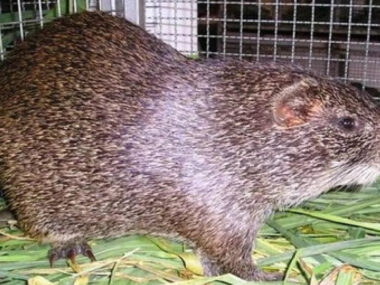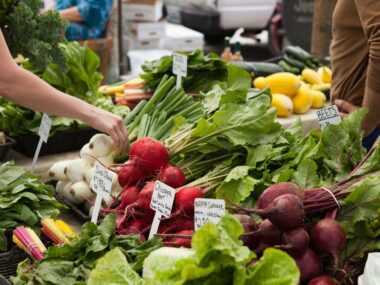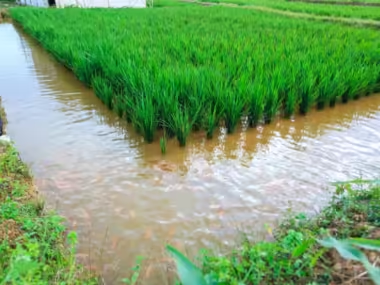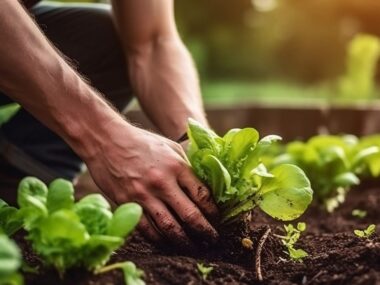Introduction: Water shortage and inefficient water administration practices pose important challenges to sustainable agriculture, significantly in areas with arid climates and restricted water assets.
Nonetheless, developments in know-how provide modern options to enhance water effectivity, optimize irrigation practices, and improve agricultural productiveness whereas minimizing environmental affect. On this article, we discover how know-how is taking part in a pivotal function in revolutionizing sustainable water administration in agriculture.
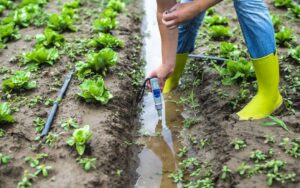
- Precision Irrigation Methods: Precision irrigation programs make the most of sensors, climate knowledge, and real-time monitoring to ship the correct quantity of water to crops on the proper time and in the best place.
These programs allow farmers to optimize water use effectivity, cut back water wastage, and reduce runoff. Applied sciences resembling drip irrigation, micro-irrigation, and soil moisture sensors permit for exact management over irrigation schedules and reduce water loss by evaporation or runoff.
- Distant Sensing and Satellite tv for pc Imaging: Distant sensing applied sciences, together with satellite tv for pc imaging and unmanned aerial automobiles (UAVs), present precious insights into crop well being, soil moisture ranges, and water utilization patterns throughout giant agricultural landscapes.
- By analyzing multispectral imagery and thermal knowledge, farmers can determine areas of water stress, monitor crop progress, and make knowledgeable choices about irrigation administration.
Distant sensing applied sciences additionally facilitate early detection of water-related points resembling leaks or irrigation system malfunctions, permitting for well timed intervention and useful resource conservation.
- Knowledge Analytics and Predictive Modeling: Knowledge analytics and predictive modeling instruments leverage large knowledge analytics, machine studying algorithms, and historic climate knowledge to forecast water availability, crop water necessities, and irrigation demand.
By integrating knowledge from numerous sources resembling climate stations, soil sensors, and crop sensors, farmers can optimize irrigation scheduling, tailor water utility charges to particular crop wants, and mitigate the dangers of over-irrigation or under-irrigation.
Predictive modeling additionally allows proactive water administration methods, resembling drought contingency planning and water allocation optimization, to make sure sustainable water use in agriculture.
- Sensible Irrigation Administration Platforms: Sensible irrigation administration platforms mix {hardware} units, software program purposes, and cloud-based platforms to streamline irrigation operations, monitor water utilization, and optimize irrigation scheduling.
These platforms provide options resembling distant management of irrigation programs, automated scheduling based mostly on climate forecasts, and real-time monitoring of soil moisture ranges.
By offering farmers with actionable insights and resolution help instruments, sensible irrigation administration platforms empower them to preserve water, improve crop yields, and cut back enter prices.
- Water Recycling and Reuse Applied sciences: Water recycling and reuse applied sciences allow farmers to reclaim and reuse wastewater, drainage water, and agricultural runoff for irrigation functions.
Methods resembling rainwater harvesting, graywater recycling, and handled wastewater reuse assist complement freshwater provides, cut back reliance on finite water assets, and reduce the environmental affect of agricultural water withdrawals.
By implementing water recycling and reuse applied sciences, farmers can obtain larger water safety, resilience to drought, and long-term sustainability in agricultural water administration.
Conclusion: Expertise performs a pivotal function in remodeling sustainable water administration practices in agriculture, providing modern options to deal with water shortage, optimize irrigation effectivity, and promote environmental stewardship.
By leveraging precision irrigation programs, distant sensing applied sciences, knowledge analytics, sensible irrigation administration platforms, and water recycling applied sciences, farmers can improve water productiveness, mitigate the impacts of local weather change, and foster a extra sustainable and resilient agricultural sector.
As we proceed to innovate and harness the ability of know-how, we are able to pave the way in which for a future the place agriculture thrives in concord with the pure surroundings, guaranteeing meals safety and water sustainability for generations to return.

